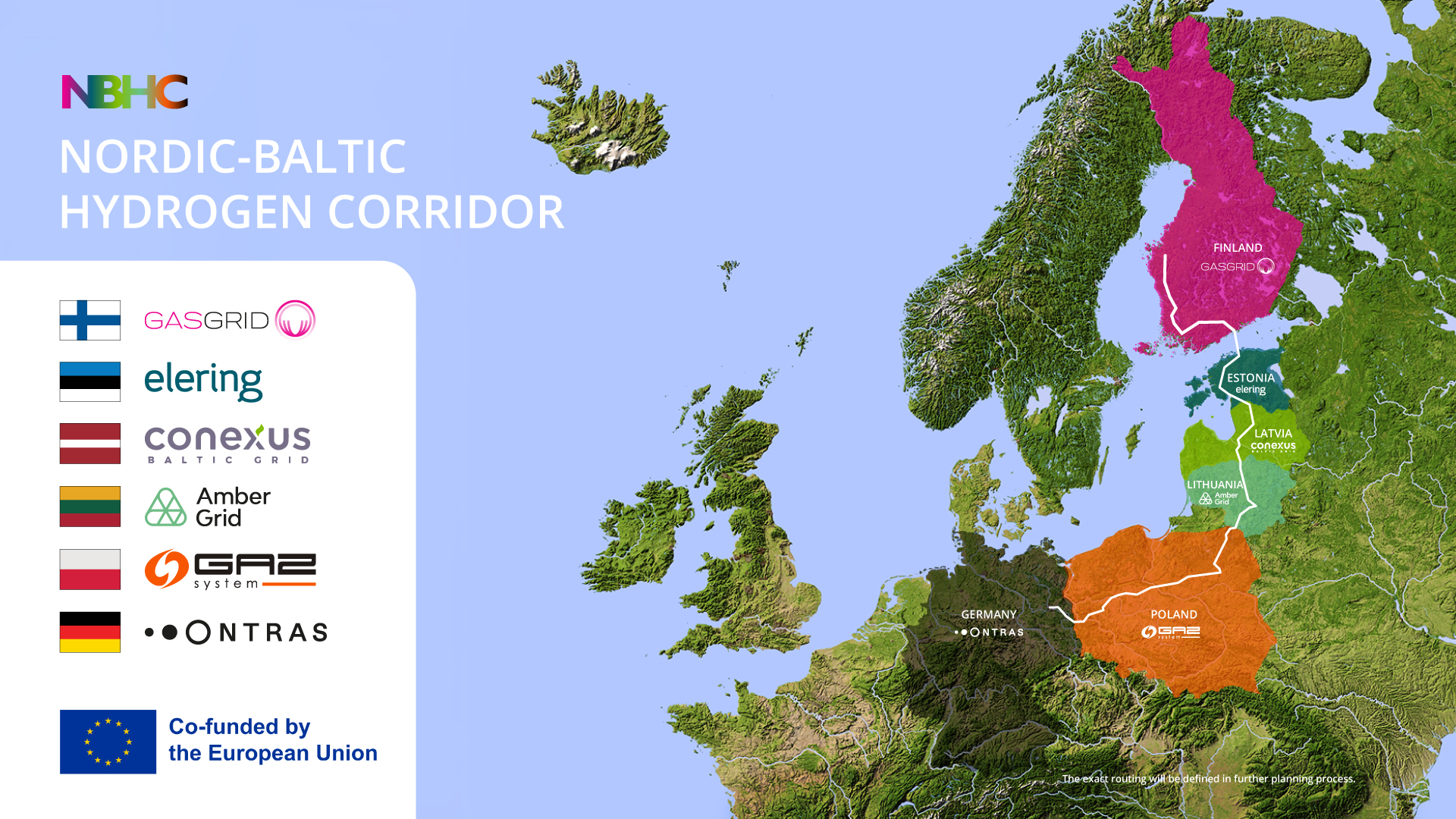Press releases
23.07.2025
“Strategically crucial for the future of EU energy infrastructure” - NBHC receives CEF funding
The project promoters of the Nordic Baltic Hydrogen Corridor (NBHC) Finland’s Gasgrid vetyverkot Oy, Estonia’s Elering, Latvia’s Conexus Baltic Grid, Lithuania’s Amber Grid, Poland’s GAZ-SYSTEM, Germany’s ONTRAS and the European Climate, Infrastructure and Environment Executive Agency (CINEA) signed a grant agreement for the European Union (EU) financial support to the NBHC.

The grant agreement was signed on 1st of July 2025 by the countries developing the Nordic-Baltic Hydrogen Corridor project and the European Climate, Infrastructure and Environment Executive Agency (CINEA).
The collaboration reflects a shared commitment to building a resilient and sustainable energy future across the Baltic Sea region. The Corridor aims to support the development of clean hydrogen markets and integrate them into Europe’s future energy system.
The maximum grant amount of €6.8 million will support the NBHC feasibility phase. The co-financing from the Connecting Europe Facility (CEF) for cross-border energy infrastructure projects under the Trans-European Networks for Energy (TEN-E) will allow NBHC project partners to conduct in-depth feasibility studies that examine the technical, economic, regulatory and environmental aspects of building a large-scale hydrogen pipeline network in the Baltic Sea region.
“We are thrilled by the Commission’s decision to grant the NBHC a substantial amount of funding for its feasibility phase. This underlines the strategic importance of our joint project for the EU as a whole and will allow us to procede with in-depth studies examining how the crucial aspects of this planned corridor should be integrated. Together, we are building the necessary infrastructure for contributing our part to a clean, climate-neutral future”, commented Ralph Bahke, ONTRAS Managing Director Controlling and Development.
The NBHC represents a significant step towards building firsts steps of interconnected hydrogen infrastructure connecting hydrogen production and consumption across the region. By supporting renewable hydrogen transmission, the corridor will enhance energy security, and accelerate Europe’s transition to a decarbonised economy.
The feasibility study phase is expected to be completed in the 1st quarter of 2027 and it will lay the groundwork for subsequent project development phases. NBHC commissioning is expected in the early 2030’s.
As the feasibility phase gets underway, stakeholders across the public and private sectors will be invited to contribute to the process, ensuring that the Project aligns with local needs, environmental standards, and long-term strategic goals.